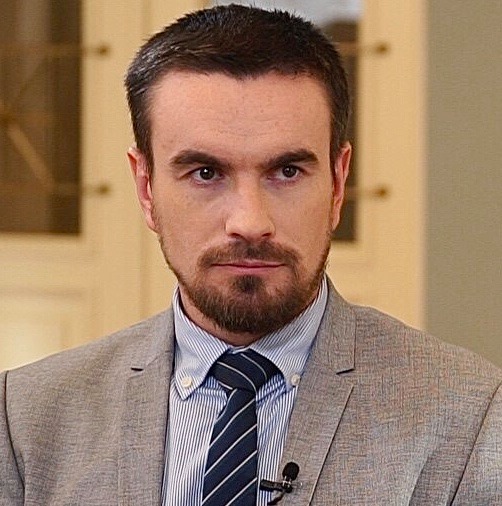EU-Belarus relations saw a dramatic worsening last week: Belarus representatives in Brussels and Warsaw have been recalled to Minsk; EU and Polish ambassadors were practically expelled from the country; all ambassadors of EU member states to Belarus have left the country shortly. Why did the official Minsk react so harshly? What is the reason for such severe actions? What are the steps that can be taken by conflicting parties?
The causes of the crisis
The diplomatic crisis and further escalation of the political EU-Belarus conflict is caused by the following: both parties neither really understand each other’s motives and objectives, nor they trust each other completely. Mistrust was always present in the Belarus-EU relations, but it grew after the events of December 19, 2010.
The European Union still lacks a strategy (“action plan”) towards Belarus. Therefore, in general, its policy is merely reactive. Minsk’s foreign policy, in principle, does not promote any long-term strategies: it is momentary (short-term), but at the same time it is flexible and dynamic, based on the policy of maximising external rents. In fact, the parties do not see how they can develop relations, where the relations can lead to, what the goals and objectives are, and, therefore, what the benefits of cooperation and disadvantages of the conflict can be. This uncertainty leads to frequent conflicts, some of them, initially being passive by nature, become more active. One day Belarusian regime persists on demonstrating repression, another day it pursues cosmetic liberalisation. One day the EU begins a cautious dialogue, another day it decides to stop the interaction, demonstrating its moral position.
The latest news in this recent conflict is the following: after the presidential elections in Belarus, Alyaksandr Lukashenka miscalculated. He thought that the EU being a rational and impersonal bureaucratic machine would always behave in the same way and would be compelled to somehow continue the dialogue they started. However, after December 19, Lukashenka became a personal enemy for a few influential European politicians (Radoslaw Sikorski, Guido Westerwelle, Carl Bild) who would have liked to make up for a failed mission to "educate (reform) a dictator."
At the end of February 2012, Minsk was ready to resume the dialogue and release some political prisoners, if the EU Council did not expand the visa ban list (in particular, Gunnar Wiegand spoke about it after the meeting at the Belarusian Foreign Ministry)¹. The government was also ready for escalation of the conflict if Brussels continued the policy of restrictive measures. In other words, the Belarusian side had an action plan for both scenarios. But it did not foresee that the EU would decide to extend the black list to 21 persons only and it would not include businessmen. Therefore, Minsk’s response to expel European diplomats was disproportionately harsh. The Belarusian government reacted as if the EU introduced very tough sanctions, though, in reality, the visa-ban list was a symbolic EU response which did not represent a threat to Lukashenka's rule.
Having considered the attempt of Sikorsky-Westerwelle's mission, the European Union was not ready to make a first step forward and to freeze the expansion of restrictive measures, in expectation that Minsk would respond by releasing political prisoners. The Belarusian authorities not only failed to take any steps to stop the expansion of the ban list but they also imposed an unduly harsh sentence on the activist Syarhei Kavalenka from Vitsebsk. Therefore, European Council added Belarus to its agenda at the last minute and 21 new names were included in the visa ban list.
The Russian election and Belarus deepening economic dependence on Russia were another contributing factor in Belarus-EU crisis. Belarusian authorities received support from Moscow. Therefore, they now feel more confident in its relations with the West, they can take more drastic actions. Not implying that the current situation has been plotted in Russia, we admit that Russia has benefited from the EU-Belarus conflict in both situations - after December 19, 2010 and now. Therefore, consciously or unconsciously, the Kremlin profits from "severe EU sanctions" policy.
How both parties view the conflict
The European Union sees Belarus as a typical Eastern European country where you need to build relations the same way as, for example, with Moldova and Ukraine who seek to join the European Union and willing to comply with the requirements of necessary standards and values. Brussels considers the authorities in Belarus illegitimate and therefore, it relies on the political opposition and the civil society considering them influential political actors in Belarus. But in reality, the political opposition and civil society have very limited impact on the population at large. By supporting the opposition and the civil society and isolating the government, the EU believes that it shifts the balance towards pro-democratic forces and increases their chances to win. But in reality, by expanding the use of sanctions, the EU will only encourage the regime to enforce repressions, because the authorities in Minsk do not have other means (leverage) to influence Brussels. By undertaking these measures, Minsk reduces risks that the opposition may represent for the regime, provokes and promotes its radicalisation and also pushes them outside the country.
In return, Minsk uses the current crisis, hoping to destroy the very model of EU relations with Belarus, seeing it as a European country that seeks to join the EU, and, therefore, open to political conditionality. Belarusian officials (including Lukashenka) have repeatedly pointed out the EU showed double standards towards the countries where Brussels is building relations. For example, the Belarusian authorities will fully accept the model of relations the EU develops with countries like Uzbekistan, Azerbaijan, and Kazakhstan. Thus, the deep political and diplomatic conflict demonstrates the "non-improvement" of the Belarusian regime and the necessity to accept the regime. Attempts to "educate and reform", according to this logic, will always lead to a certain image costs and the symbolic EU defeat. This model has been repeatedly tested in Russia, and the EU, thereof, is a much weaker opponent. Therefore, remembering the lessons learned from “Drazdy conflict in 1998”, Lukashenka hopes to win in this" war of nerves".
Thus, the Belarusian leadership is once again trying to convey the following message to the EU: the policy of pressure on Belarus and the policy of sanctions are counterproductive and only lead to the escalation of the conflict. The official Minsk would like to review EU policy towards the equal political dialogue and exclusion of political conditionality (human rights issues, the opposition aspect, etc.) while developing, extending trade and economic relations.
The possible steps and the limits of the escalation
In the current heated conflict the possible steps of the Belarusian government are limited, because the officials need to maintain very important economic relations with the EU that have been increasing recently. Therefore, the conflict will probably remain in political and diplomatic areas.
If the European Union expands sanctions against Belarusian businessmen and enterprises in the future, Minsk will definitely take countermeasures which may include: reducing the number of the representatives of EU diplomatic missions in Minsk, expanding the list of European politicians and officials banned to enter Belarus, increasing the repression against the opposition and civil society, reinforcing the anti-European rhetoric.
Belarusian analysts repeatedly pointed out that the EU could not introduce full-fledged economic sanctions against Belarus, because it requires more valid reasons and consensus among all EU member states. Specific sanctions against businessmen and enterprises will also be symbolic, since they can be bypassed relatively easily within the European Economic Area (EEA) framework, using wide offshore opportunities and Russian political support.
Neither Belarus nor the EU benefit from the conflict and its escalation, but the basis of the conflict will not be settled quickly. Neither Minsk nor Brussels are ready to make concessions. Taking into account that the conflict does not include direct economic loses for Belarus, the reconciliation process may take many months. The catalyst for its resolving maybe in upcoming parliamentary election and the increasing Russia pressure related to election of a new president. The outcome of the conflict may result in even more increased repression in the country, as well as deepening Belarus dependence on Russia.
In our opinion, the parties must refrain from further actions that could result in the conflict escalation, and to develop a clear and understandable road map for resolving the conflict, which includes writing down all the necessary steps that needed to be taken by both parties. We should think about the subject who would be a mediator. In the following two articles we will propose the draft of such road map, as well as the analysis of the consequences of the internal conflict with the EU.
This article was initially published on BelaPAN web-site
Translated by the ODB



